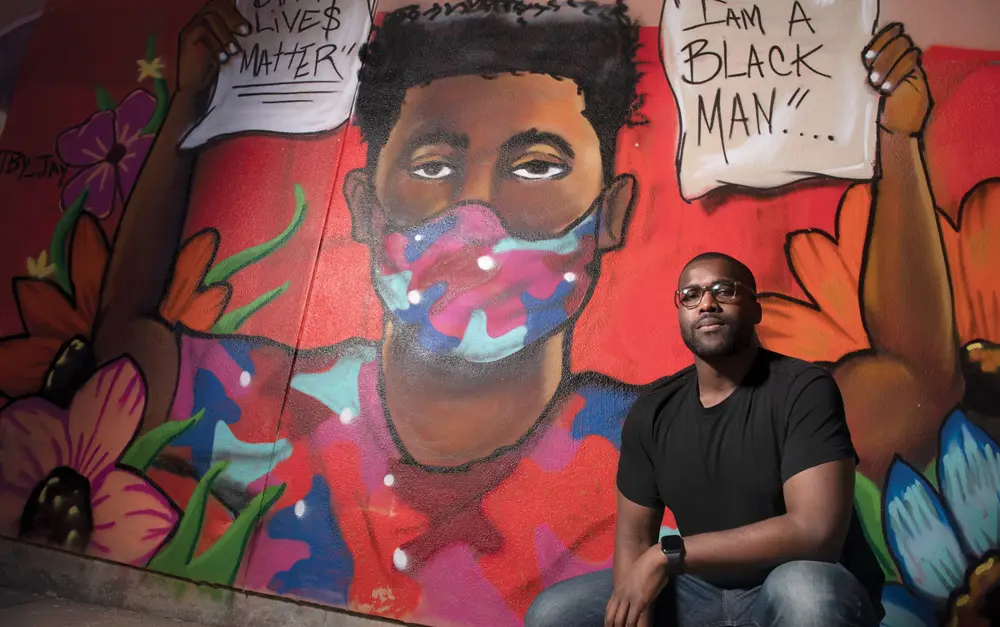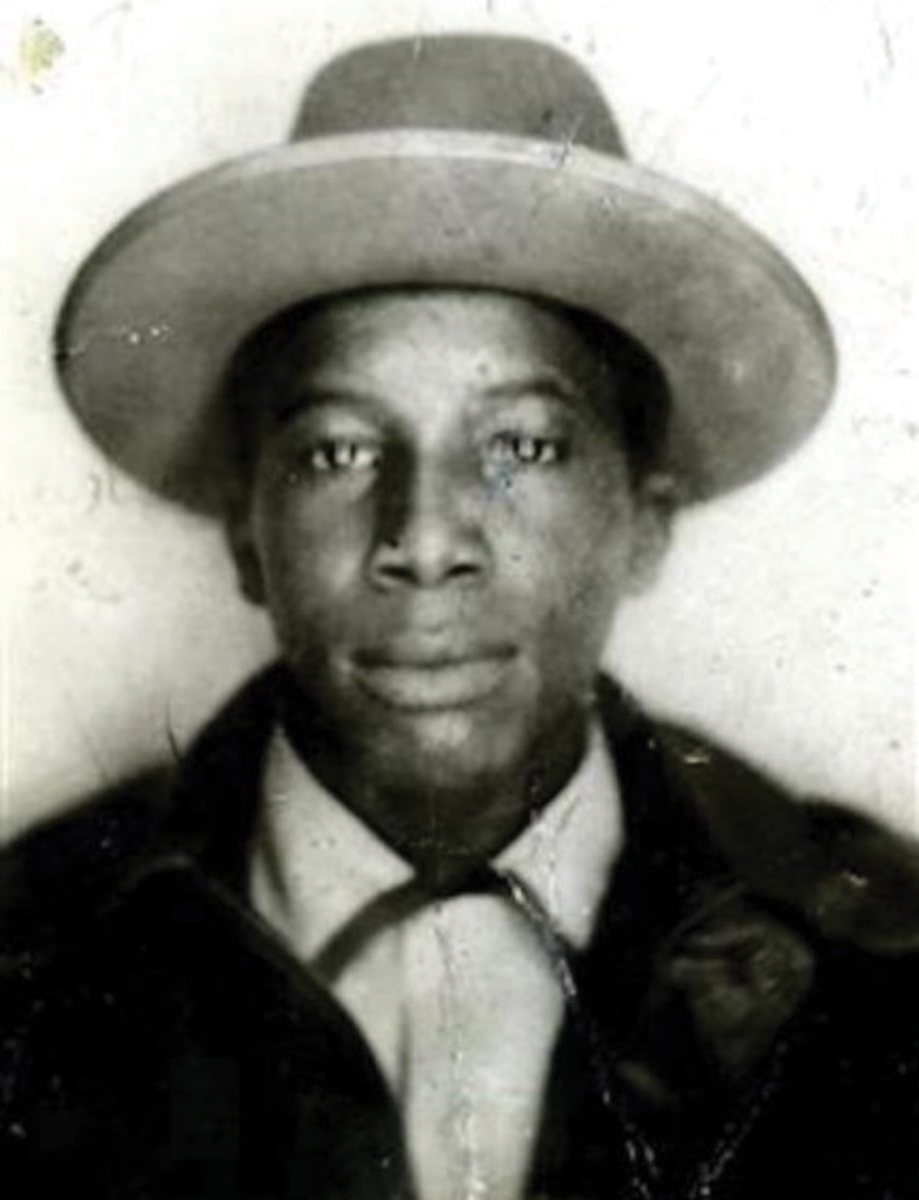
In 1958, my great-great uncle was fatally shot by a Milwaukee police officer. My uncle’s name was Daniel Bell. He was 22 years old, the age I am now. I learned about this story this past summer from a book written by my great-great aunt, Sylvia Bell White. Sister: An African American Life in Search of Justice, chronicles the story of my ancestors who were raised in Springfield, Louisiana, about 60 miles northwest of New Orleans. Segregated, subjugated, and exasperated, my aunt and her twelve brothers migrated north to Milwaukee in search of better opportunities and a chance to achieve the American Dream. However, when they arrived, they were met with the American Nightmare.
My uncle, Daniel, had just celebrated his birthday with friends and family. As he left the gathering, driving one snowy February evening, two white police officers engaged him in a traffic stop. He didn’t have a driver’s license and knew how unjust the justice system could be during Jim Crow. Daniel fled and the officers pursued him on foot. Once they had him within their grasp, one of the officers shot Daniel at close range in the back of the neck. As he lay there bloody, one of the officers placed a knife in Daniel’s right hand remarking, “He’s just a damn n----r kid anyway.”

Their ploy probably would’ve been successful had it not been for the fact that Daniel was left-handed. This blunder would take nearly 20 years to uncover, but my aunt, Sylvia, and her brothers would go on to reveal the ugliness that lay beneath. After an all-white jury initially exculpated the officers, a federal jury would go on to hold the policemen accountable and award the Bell family $1.6 million.
As I was learning about this dark chapter in my family’s history, I couldn’t help but notice the parallels between then and now. There was a young Black man restricted and suffocated by the sting of racism. A power imbalance between that man and two agents of the state. And an initial institutional failure that denied justice. These are American problems that have withstood the test of time. Every generation has been forced to grapple with this reality. I can’t remember a time when this country wasn’t discussing the death of a Black man at the hands of police. I was 14 years old when Trayvon Martin was murdered by someone masquerading as an officer. I was 16 years old the summer when Eric Garner, Michael Brown, and Laquan McDonald were killed. Just as I was getting ready to head off to college, Alton Sterling was gunned down in Baton Rouge. My collegiate years would then be punctuated by deaths of people who looked like me. It was physiologically traumatizing to constantly see Black, lifeless bodies splattered across the television. It made me and so many other Black people question our fundamental worth in this country.
The incidents this past summer felt all too familiar. The deaths of Ahmaud Arbery, George Floyd, Breonna Taylor, and countless others were Daniel Bell all over again. My uncle deserved better, and these Black lives deserved better. This national reckoning is welcomed, but it is important to understand just how pervasive the problem of police brutality is, and how silence equals complicity. Anything short of active and aggressive anti-racist action, begets responsibility for the consequences. This is why the Black Lives Matter movement has taken to the street marching, speaking, and imploring the world to pay attention, listen, and act. It is ultimately an affirmation of humanity. Because to wake up as a Black person in this country is to incessantly and warily come to terms with your own mortality. To wake up as a Black mother in this country is to grieve—to grieve for the lives they created, nurtured, and valued like a work of art.
The premise of this country was based on individualism and an underlying skepticism, but faith, in the government. Trust in the social contract supposedly made room for the grand idea of the American Dream. But for too many Black, indigenous, and people of color in this country, that trust has been broken. And for some, it was never there to begin with. That is the American Nightmare.
So, how do we proceed? We must demand more of our institutions. Yes, they have routinely failed us, and because of this we sometimes sink into cynicism. But if we give in, the powers that be win and their carelessness can run amok. We have to engage, relentlessly and continuously, to produce the outcomes that are just and equitable.
In the fall of 2019, I participated in a program with New Orleans Mayor LaToya Cantrell called Action New Orleans (ANO) to complete my public service requirement at Tulane. The entire program was shaped by Cantrell’s grassroots origins. Her history as an activist advocating for the Broadmoor neighborhood in the wake of Hurricane Katrina reimagined public service with an emphasis on justice and equity. My work with ANO led me to my role as a field organizer for a U.S. Senate candidate in South Carolina this year. Utilizing some of the same skills and practices I learned during my time with ANO, I have been organizing to empower and inspire a community to shape its own destiny.
We have to engage, relentlessly and continuously, to produce the outcomes that are just and equitable.
It is difficult work, but this will be our path away from these seemingly inescapable generational curses. Because from Daniel Bell to Frederick Bell—two generations apart—little has changed. In honor of my uncle and other Black Americans who have been pressed under the thumb of systemic oppression in this country, I plan to keep up the fight—listening, learning, and leading—so that for generations yet born, the American Nightmare can end, and the dreams of our ancestors fulfilled.

